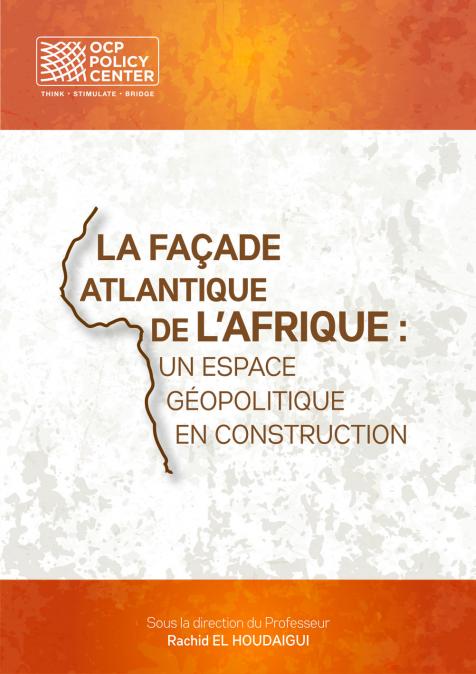Publications /
Opinion
بلغت أزمة حوض النيل الناجمة عن تشييد سد "النهضة الإثيوبي" مرحلة حاسمة، وأضحت في مفترق الطرقات بين الحرب والسلم، خصوصا بعد التحركات الدبلوماسية الأخيرة وبعد انطلاق حشد الجنود على الحدود. حيث يشير الخبراء المختصون في هذه القضية أن العلاقات بين دول حوض النيل متأرجحة بين الصراع والتعاون، ويقرون أن المفاوضات حول قضية الماء تشهد مدا وجزا وتقلبات بحكم توالي فترات من المقاومة والجمود وحتى التهديدات في بعض الأحيان
إن تغير المواقف في العلاقات بين البلدان حول مياه النيل راجع إلى التحولات التي شهدتها هذه الدول منذ المعاهدات والاتفاقيات القديمة وحتى الوقت الراهن. ونذكر ضمن هذه التحولات النمو السكاني الذي زاد من الطلب على الماء وتطور التقنيات الزراعية وأنظمة السقي التي مكنت من تحويل مجرى المياه ونقلها على مسافات طويلة، وكذا تطور المراكز الحضرية الأكثر استهلاكا للماء مقارنة مع البنيات الريفية
علاوة على البعد الإقليمي للقضية، المحصور في البلدان المطلة على النهر، تمتلك بعض مناطق حوض النيل أهمية جيوسياسية خاصة تغذي أطماع بلدان من خارج المنطقة. ويتعلق الأمر بالدول المطلة على النيل وتلك المطلة على البحر الأحمر في الوقت ذاته (بما في ذلك إثيوبيا رغم أنها لا تطل على البحر الأحمر). وتهم قضية الماء بالتالي جيرانا جيوإستراتيجيين آخرين، ويتوسع مجال التعاون أو العداء ويتجاوز حوض النيل
لذلك لا يمكن فصل الخلاف، حتى لا نقول النزاع، الحالي بين كل من مصر وإثيوبيا وإريتريا والسودان حول السد الإثيوبي على النيل عن الوضعية الجيوسياسية في الشرق الأوسط برمته وعن وضعية القرن الإفريقي المعقدة
عندما قام الوزير الأول الإثيوبي هايليه مريم ديساليغنه شهر نونبر/تشرين الثاني 2017 بزيارة رسمية من يومين إلى دولة قطر، لم يضم جدول أعماله المعلن إلا المواضيع المتعلقة بالاستثمارات القطرية في إثيوبيا في مجالي الصحة والزراعة. غير أن وقت الزيارة كان مصدر الكثير من التأويلات. فقد كانت قطر حينها تحت الحصار المضروب عليها من طرف المملكة العربية السعودية والإمارات العربية المتحدة والبحرين ومصر. بينما لم تتردد مصر في التهديد بالتدخل العسكري من أجل وقف مشروع تشييد السد الإثيوبي على نهر النيل. وكان تدهور العلاقات بين قطر وبلدان الخليج الأخرى الداعمة لمصر (خصم إثيوبيا في قضية النيل) مناسبة لم تتوان إثيوبيا في استغلالها من أجل العثور على موطئ قدم في الخليج والتحالف مع "عدو عدوها المصري"
هذا وأعلن الرئيس التركي مؤخرا، وبالضبط شهر ديسمبر/كانون الأول، عن تفويض السودان عن تدبير جزيرة سواكن (البحر الأحمر) وإدارتها إلى تركيا مقابل وعود بالاستثمارات وإعادة الإعمار والتعاون العسكري. حيث تنوي تركيا إنشاء قاعدة عسكرية هناك. ولا شك أن السودان على غرار بقية بلدان العالم حر في ربط العلاقات مع الدول الأخرى حسب رغباته ومصالحه. لكن مصر متوجسة من التواجد العسكري التركي على أبوابها، ولم ينس مسؤولها بعد دعم تركيا للإخوان المسلمين. وينطبق الأمر ذاته على المملكة العربية السعودية، حيث أثار التقارب السوداني – التركي حفيظة الرياض، وأزعجتها محاولة إخراج الخرطوم من تحت سيطرتها لصالح تركيا حليفة قطر القوية
وتمتلك إثيوبيا علاقات جيدة مع السودان، بينما توطدت علاقاتها مع قطر منذ زيارة وزيرها الأول السالفة الذكر. أضف أن تركيا شريك استراتيجي لإثيوبيا كما يدل على ذلك تبادل الزيارات المنتظم بين البلدين (يرجى الإطلاع على الإطار). بينما يتموقع في الطرف الآخر من الحلبة أربع دول: مصر، حليف إريتريا، والإمارات العربية المتحدة والمملكة العربية السعودية. حيث توجد كل من مصر وإريتريا في حوض النيل، شأنها في ذلك شأن إثيوبيا والسودان، وهما معنيتان مباشرة بالقضايا المتصلة بمياه هذا النهر. في حين تهتم المملكة العربية السعودية والإمارات العربية المتحدة، على غرار تركيا وقطر، بهذا الخلاف لأسباب جيوإسراتيجية مرتبطة بالبحر الأحمر والخليج والشرق الأوسط أكثر من ارتباطها بمياه النيل
ويذكرني هذا الاصطفاف في معسكرين مستعدين للاصطدام بالمقالة التي ساهمت بها في المجلد الثاني من الحوارات الاستراتيجية بين مركز الدراسات والأبحاث و مدرسة الدراسات العليا التجارية باريس، حيث أشرت حينها إلى الديناميات الثلاث التي تميز المنطقة، ومن بينها دينامية الحرب ودينامية التدخلات الأجنبية
حسب آخر المعلومات، بدأ السودان في حشد الجنود على الحدود مع إريتريا بدعوى أنها قاعدة مصرية متقدمة وأنها تشكل تهديدا على الوحدة الترابية السودانية. ويبدو أن الأوضاع بين إريتريا وإثيوبيا أقرب للحرب منها إلى السلم. بينما يتأرجح الخطاب الإثيوبي والمصري حول السد المنتظر بين الحرب والسلم، ويعيش البلدان نوعا من العداء الودي . ويتدخل في هذا النزاع المحتمل أربع دول من خارج المنطقة. ونقصد بذلك تركيا وقطر من جهة والمملكة العربية السعودية، المدعومة من الإمارات العربية المتحدة، من جهة أخرى. ويبقى السؤال الأكبر في هذا الصدد هو هل انطلقت دينامية الحرب ودينامية التدخل الأجنبي أم ليس بعد؟
تعيش إثيوبيا صاحبة مشروع السد العظيم ما يكفي من المشاكل الداخلية، ولا يبدو أنها تستطيع المغامرة في حرب غير محسوبة العواقب. وتوجد مصر، خصم إثيوبيا الرئيسي، في الوضعية ذاتها، حيث يتعين عليها مراقبة ما يحدث في ليبيا غربا وفي سيناء بسبب الإرهاب شرقا، ولا شك أنها تحبذ تفادي فتح جبهة جديدة في الجنوب. بينما لم تتوقف الحرب في السودان إلا سنة 2011 بعد استقلال جاره الجنوبي، ومازالت الحرب الأهلية مشتعلة في جنوب السودان. ولا تمتلك إريتريا الموارد الكافية للجوء إلى السلاح بحكم ضعفها أمام كل من السودان وإريتريا. أما بلدان الخليج وتركيا، فهي منشغلة في نزاعات أخرى، سوريا بالنسبة لتركيا واليمن بالنسبة للمملكة العربية السعودية والإمارات العربية المتحدة. لذلك يبدو، رغم المظاهر والادعاءات الحربية، أن حرب النيل لن تندلع في نهاية المطاف






